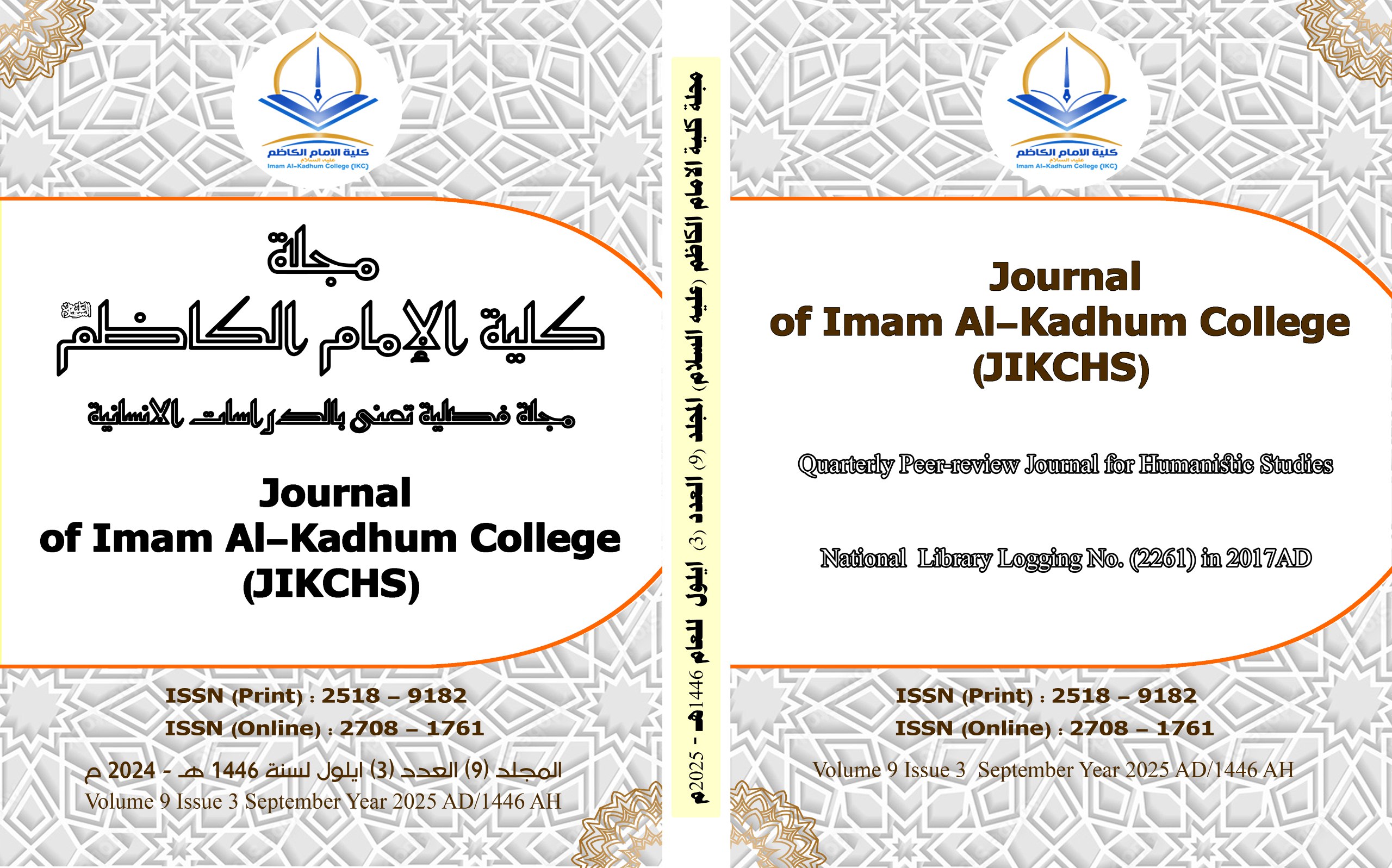أثر إهمال الفروق الفردية في التعلم على أداء طلاب المتوسطة العراقيين دارسي اللغة الإنجليزية كلغة أجنبية
DOI:
https://doi.org/10.61710/0xv51128الكلمات المفتاحية:
Individual learning differences, EFL, academic performance, differentiated instruction, Iraqi intermediate schools, gifted learners, struggling studentsالملخص
يهدف هذا البحث إلى دراسة تأثير إهمال الفروق الفردية في التعلم على الأداء الأكاديمي للطلبة العراقيين المتفوقين والضعفاء في اللغة الإنجليزية كلغة أجنبية في المرحلة المتوسطة، ومع تزايد الاهتمام بتعليم اللغة الإنجليزية في النظام التعليمي العراقي، أصبح من الضروري التعرف على الممارسات التعليمية التي تعزز أو تعيق تقدم الطلبة. اعتمدت الدراسة منهجاً مختلطاً يجمع بين الأدوات الكمية والنوعية لتحليل آثار التعليم الموحد على الطلبة ذوي الاحتياجات الأكاديمية المختلفة. أظهرت النتائج أن تجاهل أنماط وقدرات التعلم الفردية يعيق التقدم الأكاديمي بشكل ملحوظ، لا سيما لدى الطلبة الذين يقعون في طرفي الأداء (المتفوقين والضعفاء). وتوصي الدراسة باعتماد استراتيجيات التعليم المتمايز كحل فعّال لتعزيز الإنصاف والتحصيل في صفوف تعليم اللغة الإنجليزية.
المراجع
References
Al-Fahad, F. N. (2015). The Effectiveness of Differentiated Instruction in EFL Classrooms in Saudi Arabia. International Journal of Educational Studies, 7(3), 112–125.
Al-Hadithi, A. (2021). Challenges in the Iraqi EFL Classroom: A Case Study of Secondary Schools. Baghdad Educational Review.
Al-Mansour, H. (2020). Pedagogical Challenges in Iraqi EFL Classrooms. Tikrit Journal of Education.
Bandura, A. (1986). Social Foundations of Thought and Action: A Social Cognitive Theory. Prentice-Hall.
Carolan, J., & Guinn, A. (2007). Differentiation: Lessons from master teachers. Educational Leadership, 64(5), 44–47.
Coyne, M. D., Kame’enui, E. J., & Carnine, D. W. (2007). Effective Teaching Strategies that Accommodate Diverse Learners. Pearson.
Dörnyei, Z. (2005). The Psychology of the Language Learner: Individual Differences in Second Language Acquisition. Routledge.
Ellis, R. (2008). The Study of Second Language Acquisition (2nd ed.). Oxford University Press.
Gardner, H. (1983). Frames of Mind: The Theory of Multiple Intelligences. Basic Books.
Hall, T. (2002). Differentiated Instruction. National Center on Accessing the General Curriculum.
Hattie, J. (2009). Visible Learning: A Synthesis of Over 800 Meta-Analyses Relating to Achievement. Routledge.
Heacox, D. (2012). Differentiating Instruction in the RegularClassroom. Free Spirit Publishing.
Oxford, R., & Ehrman, M. (1993). Second language research on individual differences. Annual Review of Applied Linguistics, 13, 188–205.
Reis, S. M., & Renzulli, J. S. (2004). Current research on the social and emotional development of gifted and talented students: Good news and future possibilities. Psychology in the Schools, 41(1), 119–130.
Renzulli, J. S., & Reis, S. M. (2003). The schoolwide enrichment model. Gifted Education International, 18(1), 43–50.
Robinson, A. (2008). Differentiating Instruction for Gifted Learners. Prufrock Press.
Snow, C., & Biancarosa, G. (2003). Adolescent literacy and the achievement gap: What do we know and where do we go from here? Carnegie Corporation Report.
Tomlinson, C. A. (2001). How to Differentiate Instruction in Mixed-Ability Classrooms. ASCD.
Subban, P. (2006). Differentiated instruction: A research basis. International Education Journal, 7(7), 935–947.
Tomlinson, C. A. (2014). The Differentiated Classroom: Responding to the Needs of All Learners. ASCD.
UNESCO. (2019). Education in Iraq: Challenges and Opportunities.
VanTassel-Baska, J., & Stambaugh, T. (2005). Challenges and possibilities for serving gifted learners in the regular classroom. Theory into Practice, 44(3), 211–217.
Valiandes, S. (2015). Evaluating the impact of differentiated instruction on literacy and reading in mixed ability classrooms. Educational Research, 57(1), 51–68.
VanTassel-Baska, J., & Stambaugh, T. (2005). Challenges and possibilities for serving gifted learners in the regular classroom. *Theory Into Practice*, 44(3), 211–217.
Vygotsky, L. S. (1978). Mind in Society: The Development of Higher Psychological Processes. Harvard University Press.
Witkin, H. A., Moore, C. A., Goodenough, D. R., & Cox, P. W. (1977). Field-dependent and field-independent cognitive styles and their educational implications. Review of Educational Research, 47(1), 1–64.
التنزيلات
منشور
إصدار
القسم
الرخصة
الحقوق الفكرية (c) 2025 Journal of Imam Al-Kadhum College

هذا العمل مرخص بموجب Creative Commons Attribution-NonCommercial-NoDerivatives 4.0 International License.





